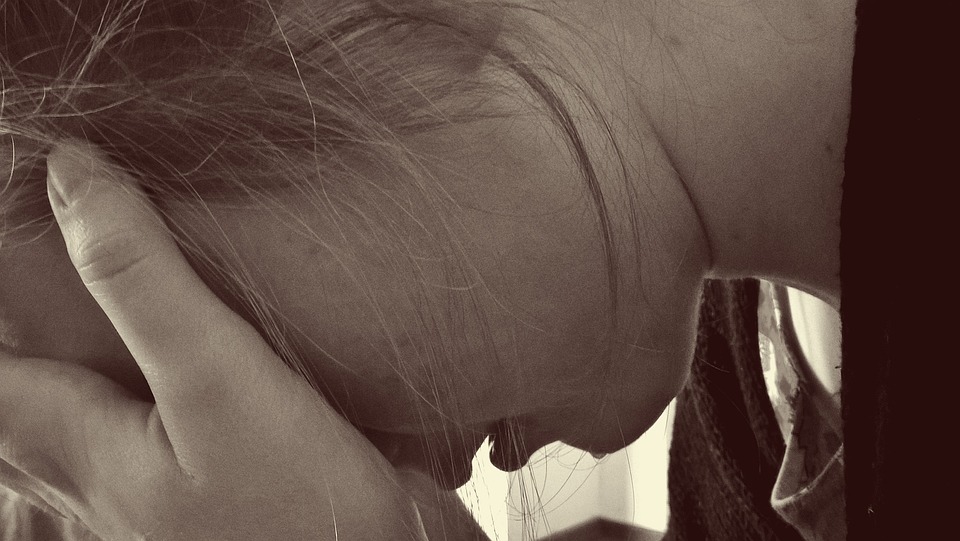
If you live in the past, you’re constantly dwelling on past experiences and events, which can interfere with your present life. You may find yourself obsessing over what happened, replaying negative thoughts, and dwelling on past mistakes repeatedly.
You may be avoiding activities or places because they remind you of the past.
If you’re constantly living in the past, you may be missing out on new experiences. You may also find yourself obsessing over old experiences instead of enjoying the present moment.
If you find yourself always talking about what happened in the past, or trying to recreate past situations, you may have unresolved trauma.
If you constantly dwell on past events, you will miss out on the joy of the present moment.
Why Do People Live In The Past?
People have a tendency to live in the past because they are afraid of the future, they are comfortable with what they know, or they may have had a bad experience in the past that they do not want to repeat.
Some people may have trouble moving on from a traumatic event.
Some people may have trouble forgetting happy memories and experiences because they are afraid that they will never have anything as good in the future.
Some people may choose to live in the past in order to avoid having to face the present.
You may fixate on old memories because you’re not content with your current life.
It’s important to let go of the past and move on.
Why Should You Stop Living In The Past?
If you want to fully enjoy your present life, one of the main reasons you should stop living in the past is that it prevents you from doing so. You may miss out on new experiences and opportunities if you’re fixated on your past mistakes.
Looking back on the past can negatively affect your mental health. Excessive social media use can negatively impact your mental health.
Looking to the past instead of the present is selfish because it doesn’t allow others to get to know the real you. If you’re always living in the past, people won’t know who you are in the present.
relying on past experiences can prevent you from achieving new goals If you’re always thinking about past experiences, it’s difficult to focus on making a more positive future.
Letting go of the past is necessary in order to be happy in the present.
So how do you stop living in the past?
How To Stop Living In The Past
1. Examine Your Past
If you want to stop living in the past, you need to understand why you are still attached to it.
What experiences from your past are still affecting you? These could be both good and bad experiences. Consider how your past experiences have shaped your life and how they continue to impact your thoughts and actions.
Gaining a better understanding of your past will help you see why you’re still holding on to it, and how to let it go.
Some people find it helpful to communicate their thoughts through writing or talking to a therapist about their experiences. Any of the following can give you a better understanding of your past and help you move on.
2. Take Responsibility For The Past
Once you have a clear understanding of why you are still attached to the past, you should take responsibility for your role in the experience.
You are not solely responsible for the experience, but you do have a role in it.
For example, if you were in an abusive relationship, it’s essential to acknowledge your role in the relationship. You may have been enabling the abuse by staying in the relationship.
If you want to move on from your past, take responsibility for your role in it. This is also an important step in developing strong relationships in the future.
If you’re struggling to come to terms with your past, talking to a therapist or counselor may help. They can help you work through any feelings you may have about guilt or shame related to the past and help you to take responsibility for your role in it.
3. Acknowledge The Emotions You Get Due To Past Experiences
People tend to dwell on the past in order to avoid feeling negative emotions about it.
Avoidance of negative emotions will only make them worse in the long run. The best way to deal with your emotions is to face them and allow yourself to experience them.
It is not beneficial to spend a lot of time thinking about negative emotions or trying to experience them again. Letting yourself feel the emotions is an important step, but don’t get too caught up in them. After you’ve felt the emotions, let them go so you can move on.
It’s okay to feel hurt, pain, or anger. After you have processed and accepted your negative emotions, you can begin working on this next strategy.
4. Process And Heal From The Emotions You Feel
The next step after acknowledging your emotions is to start processing and dealing with them.
Moving on from the past can be a long and difficult process, but it is worth it if you want to leave the past behind.
You can express how you feel to someone else to help manage your emotions. This person could be a therapist, counselor, friend, or family member. When talking about your emotions, can help you better understand and accept them.
There is another way that you can process and heal your emotions and that is by expressing them creatively. This could be achieved by writing, painting, drawing, or any other art form.
Physical activity can also be a way to release your emotions. Working out, going for a run, or hitting a punching bag are all great ways to release stress.
Find a way to deal with your emotions that works best for you and start to heal. This is a process that will take some time. Try not to force yourself to feel better or rush the process.
5. Identify Any Lessons Learned From The Experience You Keep Reliving
Many people choose to dwell on past experiences because they have not yet learned the lessons from those experiences.
It can be helpful to spend some time thinking about any positive aspects of the experience and what you may have learned from it, in order to move on from negative memories.
Try to identify what went wrong and what you could have done differently if you keep reliving a failed relationship. There may be a number of reasons why your previous relationship didn’t work out. Perhaps you didn’t express your needs clearly, or maybe you stayed in the relationship for longer than you should have.
You can learn from your past experiences by identifying the lessons you learned from them. This will help you move on from them. It can help you learn from your mistakes so that you don’t repeat them in future experiences.
6. Identify Any Positive Aspects Of The Experience
Focusing on the negative aspects of a past event is easy. However, there are usually some positive aspects as well.
An example would be if you are obsessing over a past relationship that didn’t work out. Maybe you learned from that experience how to communicate better or be more independent.
Focusing on the positive aspects of your past experiences will help you see them more objectively. This will also help you stop fixating on the past and look toward the present and future.
7. Stop Playing Victim
Some people tend to focus on and think about the negative aspects of the past because they see themselves as victims.
If you play the victim, you’re giving up your power and control.
In order to move on from your past, you need to stop feeling like a victim. This means that you are in control of your life and your choices. It also means taking control of your future. You can start by taking responsibility for decisions that you have made in the past. Admit your mistake and learn from it.
Then, start making choices that empower you. You should only do things that make you happy and you shouldn’t let anyone else have control over your life.
Finally, start taking action towards your goals. Do not wait for another person to do something for you.
Self-pity will get you nowhere. Take control of your life and stop feeling sorry for yourself.
8. Apologize And Make Amends If Necessary
If you have caused pain to someone else through your actions, it is important to express regret and make things right.
Although it may be tough, it is crucial to let go of your past if you ever want to progress.
Start by apologizing for your actions. Then, try to make things right. This could involve making financial restitution or taking steps to help the person you harmed.
It’s important to apologize sincerely and without expectations. The main objective is to be accountable for your conduct and apologize, not to be rewarded in any way.
9. Give Yourself Closure
Many people find it difficult to move on from past events because they didn’t have a chance to say goodbye or resolve their feelings. You may be waiting for closure after a relationship or situation ended in a way that wasn’t expected or wanted.
Sometimes it’s not possible to get closure from another person. The people you want support from may not be able to give it to you. They may no longer be around or they may not be in an emotional state to help you. Therefore, it is time to give yourself the closure you need.
It’s okay that the situation wasn’t perfect. Accept that it’s over and move on. After accepting what has happened, you can move on and “close the door” on the situation.
John M. According to Grohol, accepting that you have the choice to let go of something is empowering and allows you to take back control.
10. Practice Mindfulness
Being mindful means being present at the moment, so it can help you to focus on the here and now instead of dwelling on the past.
According to research, mindfulness can help people to focus more on the present moment, reducing stress and confused thinking, and also helping them to be more compassionate to themselves.
There are many ways to be mindful, for instance, meditation, visualization, breathing exercises, mindful eating, mindful movement, etc. There are many benefits to it, which are detailed in the linked article.
You don’t need anything special to get started with mindfulness, and you can get the benefits from mindfulness even if you don’t have a lot of time to dedicate to it each day. Five or ten minutes of mindfulness every day can be beneficial.
11. Be True to Yourself
You can work on being your authentic self in the present moment. Build your confidence and work on improving yourself.
So you can be proud of who you are, and learn and grow as a person. This is more productive than spending time feeling negative about who you were in the past.
12. Make the Present Count
Make your present somewhere you want to be! Make your happiness a priority by doing things that make you happy and being around positive people. Find something that you are passionate about and that will give you a sense of purpose. This can be something like a job or a hobby.
If you want to be treated with respect, give respect to others. Be proud of your actions and how you treat others. You should prioritize both your physical and mental health. Do something different and unknown to you. Leave your comfort zone.
Making sure your present is joyful and makes you proud will ensure it is more worthy of your attention than in the past.
13. Set Goals for the Future
It’s not just the present that’s important, you can also plan for your future. Goals that are clear and attainable provide motivation and focus. It can also give you a goal to work towards, which helps with a positive mindset.
Setting goals can help you change your behavior, focus your attention, and maintain your motivation.
14. Build Confidence
Being content with who you are is a valuable confidence booster. There are many ways to make yourself feel good, such as using positive affirmations, dressing in a way that reflects your personality, and being around people who make you feel good about yourself.
15. Empower Yourself
You should remind yourself that it is your life and that you are in control of it. You can control your life and destiny. If you aren’t happy with something in your life, you can change it.
“Self-empowerment means being in control of your own life through the decisions you make on a daily basis,” says life coach Stephanie Eissinger.
16. Forgive Even Without An Apology
Sometimes people hurt us and don’t say sorry. It can be difficult to move on from the experience because it’s hard to forget what happened.
It’s crucial to forgive even if an apology wasn’t offered. forgiving someone doesn’t mean forgetting what they did or that you approve of what they did
This means that you need to stop being angry and resentful towards someone or something. This will help you to stop dwelling on the past and focus on the present.
One way to release anger and resentment even if the person who upset you doesn’t apologize is to write a letter to them expressing your feelings, but don’t send it. In the letter, explain to the person how you felt when they hurt you, and explain that you’ve forgiven them.
Then, destroy the letter or keep it in a safe place where it won’t bother you. This will help you to express your emotions and begin to heal.
17. Hang Around Positive And Supportive People
The people we choose to surround ourselves with can have a big impact on our lives.
If you’re constantly surrounded by negativity and people who don’t support you, it can make it more difficult for you to move on from your past. The people around you might not be able to empathize with what you’re experiencing, and unintentionally make you relive your hurt.
If you are around positive people, they can help you move on from your past. They will support you when you need it and help you see the positive aspects of yourself.
So, choose to hang around positive and supportive people. They can help you to stop living in the past and to start enjoying life more.














